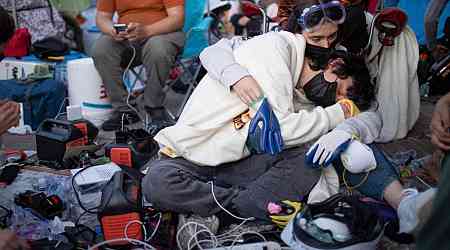Chelsea Goodrich felt like she was screaming herself hoarse, but no one could hear her.
Raised a Latter-day Saint in a close-knit community of fellow believers in Mountain Home, Idaho, Goodrich was a returned missionary pursuing a graduate degree in California when she decided to come forward with her allegation that her father had sexually abused her as a child and teenager.
In messages and recordings Goodrich and the “Mormon Stories” podcast shared with The Salt Lake Tribune, many of those with whom she discussed the abuse — family, a key faith leader and one of the church’s own “risk management” attorneys — seemed to believe her.
In fact, as The Associated Press has reported, Goodrich would go on to receive a $300,000 payment from The Church of Jesus Christ of Latter-day Saints in exchange for signing a nondisclosure agreement promising never to sue the Utah-based faith.
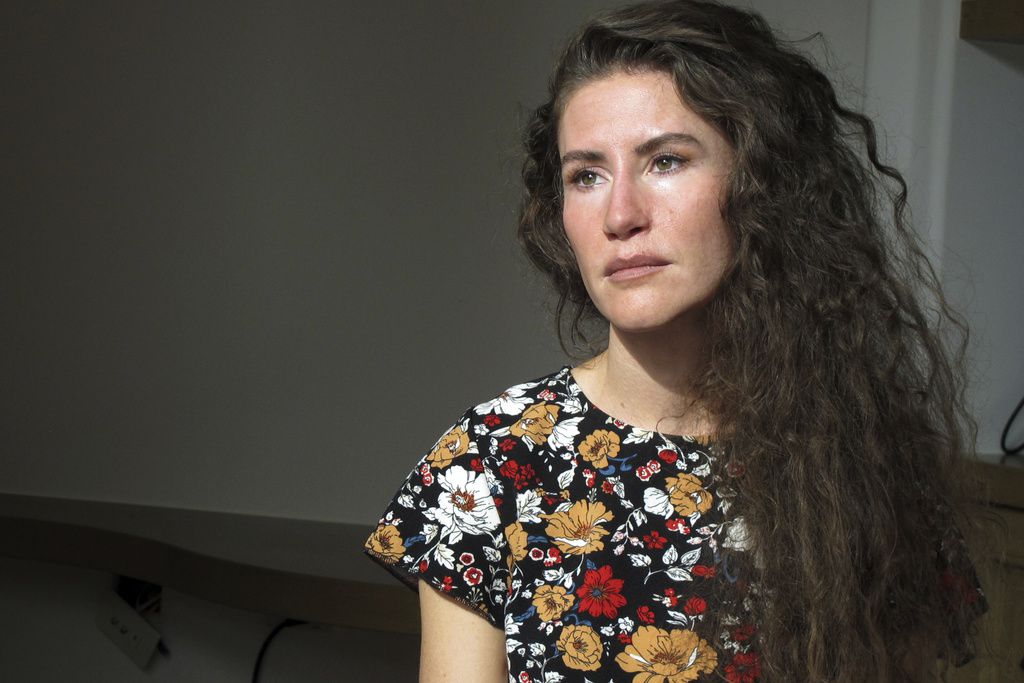
Her father, John Goodrich, was arrested. The Elmore County prosecutor’s office filed a criminal charge but later dropped it. A prosecutor explained in an email shared with The Tribune that the evidence in the case did not meet the standard needed for a criminal conviction, partly due to the amount of time that had passed since the alleged abuse.
Besides her mother, though, most suggested the best thing for everyone was for Goodrich, now 38, to forgive her father and move forward with her life.
“I was told that by speaking about my abuse and taking steps to hold my father accountable,” she said, " … I was not practicing ‘forgiveness’ as God would have me to do.”
Her experience — and those of others — suggests that forgiveness, while undeniably a core Christian teaching, can be used to forestall justice and allow abuse to persist.
Deidre Green is a Latter-day Saint and a theologian who has taught and written extensively about forgiveness.
“When we jump to forgiveness too soon, it’s usually” in an effort to preserve the “status quo, whether of institutions or society” and “to keep some sort of injustice in place,” said the assistant professor of Latter-day Saint/Mormon studies at the Graduate Theological Union in Berkeley, Calif.
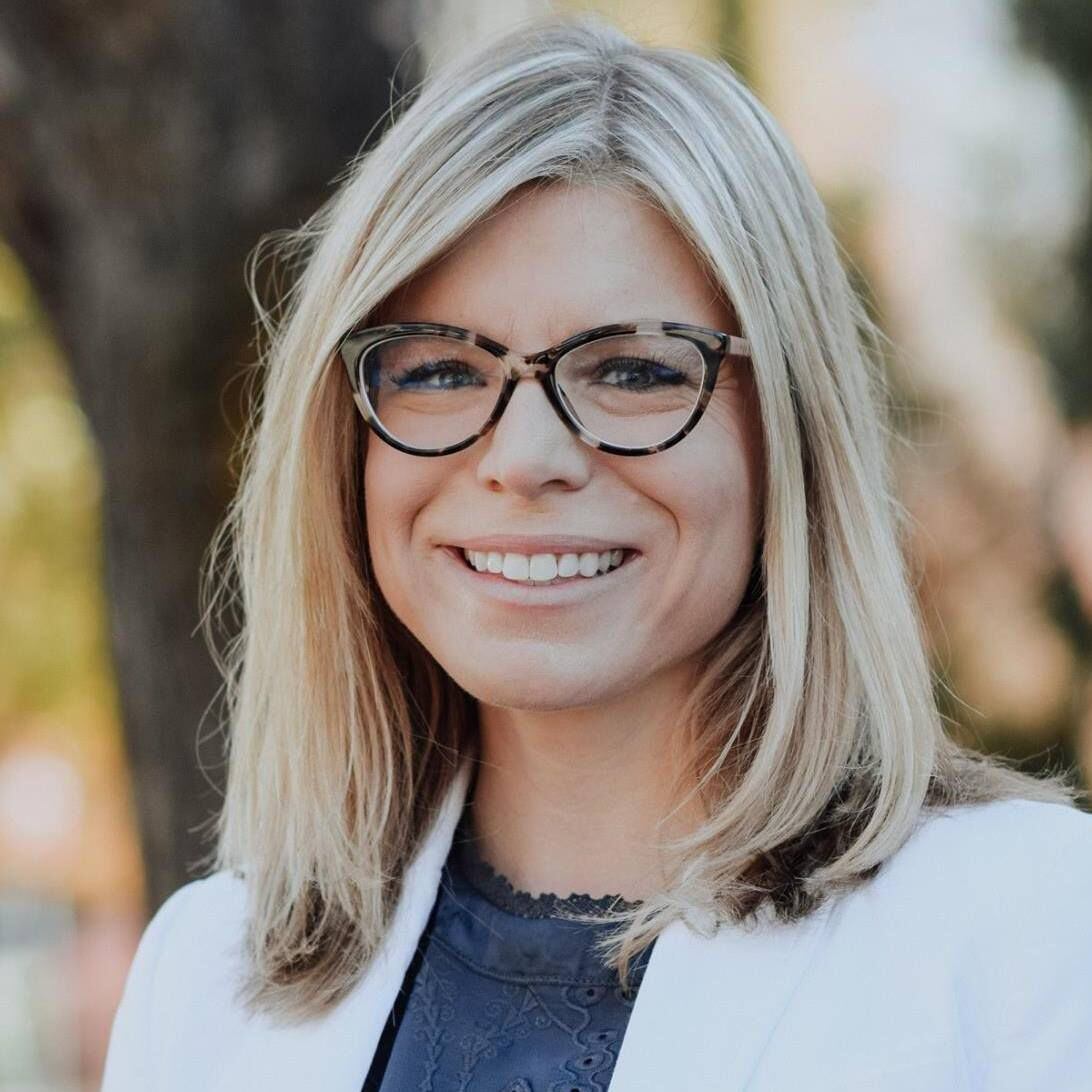
If Latter-day Saints are to counteract this impulse of demanding forgiveness prematurely, an impulse which Green said can be seen throughout Christianity and the world at large, “we need a really robust notion of what it means to live with charity that isn’t just about keeping a nice sort of veneer that everything’s OK.”
This means “digging deep and doing really difficult work in order to make our community the sort of place that it can be in terms of helping us to develop as Christians,” she added, “and to develop Christlike love.”
Mormonism’s poster girl
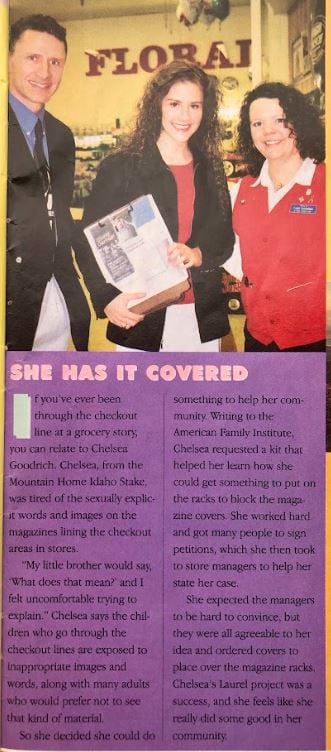
If there was ever a poster girl for the ideal young Latter-day Saint woman, Goodrich was it.
Born in Logan in 1985 and reared in Idaho, she was 15 when a Latter-day Saint apostle rose to the pulpit during General Conference and, referring to her by name, boasted of her ability to recite all 627 words in “The Family: A Proclamation to the World.”
Three years later, the church’s youth magazine ran a story applauding Goodrich for her successful campaign getting provocative magazines covered at local store checkout stands. In the washed-out photo accompanying the blurb, her dad stands proudly at her side.
What the article’s author didn’t know — and indeed, what no one in Goodrich’s life knew at the time — was that her father had allegedly been molesting her on and off since childhood, as she later told police, including during his stint as a Latter-day Saint bishop.
John Goodrich vehemently denied the accusations in a message to The Tribune, stating that the case was fully investigated and the charge was later dismissed with prejudice, meaning it cannot be refiled.
“There was no evidence,” he said, “against me.”
Chelsea Goodrich shared with The Tribune a 2015 recording she and her mother believe constitutes a confession in which John can be heard referring to a 1999 incident. John, on the other hand, disputes this interpretation, saying it is just one example of people trying to “twist honest confessions into something that they are not.”
The alleged abuse is not the reason the former missionary no longer identifies as a member of the faith, however. That decision she attributes to what happened when she tried to limit her father’s access to children, including by turning over evidence to the police.
“I assumed that I would have the support of the church and my relatives, not only in coming forward about the truth of my abuse but in doing everything I could do to try” to protect children, she told The Tribune. “Not only was I not usually supported in these efforts but was ignored and often shamed. The primary weapon of shaming was the principle of forgiveness.”
The church excommunicated her father after he gave a spiritual confession, the details of which have not been made public, to a bishop, the AP reported. But Goodrich worried that was not enough, especially because his ouster was kept private and did not, per church practice, prevent her father from attending worship services or church-sponsored activities. She said she and her mother asked local church leaders to warn other congregants, including parents with young children, about her father’s alleged abuse, but they declined.
Goodrich reached out with concerns about a specific child to the same member of the church’s risk management team who had cut her check.
In an email she shared with The Tribune, the attorney said he would “advise” local church leaders “of the need to reach out” to the child’s parents with “appropriate warnings.”
But, he continued, “as we are sadly and tragically reminded each day, we can’t control the actions and choices of others.” The best approach for her was for her to “pray, fast and plead for those who have been harmed, violated and victimized by others” and, he said, “trust and hope that healing and peace will come through the Savior’s Atonement.”
The email echoed a message her father’s sister had sent her through Facebook, and which Goodrich provided to The Tribune.
“Forgiveness and being forgiven are the most healing thing we can do,” her aunt told her. “We run into so many people who are so hurt and angry and they can’t let go of it. They prefer to carry their own baggage and keep adding to it. It just gets heavier and uglier that way.”
One relative, in another email Goodrich shared, went so far as to speak on behalf of deity, stating “[God] simply asks that you have faith in HIS PLAN and focus on your direct relationship with him and give yourself the gift of forgiveness so that you can feel his peace.”
‘Weaponizing’ forgiveness

Goodrich is hardly the first — or the last — woman to have “forgiveness weaponized” against her, said Deidre Green, the assistant professor at the Graduate Theological Union.
Green argues power dynamics often play a critical role in who is asked to forgive — and when.
A person’s age, race or gender can make it more difficult for some to seek restitution, while insulating certain members of a society from accountability. Within Mormonism’s patriarchal organization, in which men hold the final say, this is especially true of gender.
“There’s a sort of standard within Latter-day Saint culture and Christian culture generally that what it means to be a good woman is to be forgiving,” she said. “But what that really boils down to often is being morally permissive,” that is giving privileged members of the community a free pass, in the name of protecting an institution or the status quo.
Or, as Goodrich put it, “I guess it means just pretend the abuser isn’t an abuser.”
In her case, her father was also a successful dentist and former bishop, or lay leader of a Latter-day Saint congregation. She believes these factors worked against her efforts to hold him accountable. Local church leadership, in her perspective, was partial to her father and slow-walked his excommunication.
Forgiveness is a ‘lovely’ concept
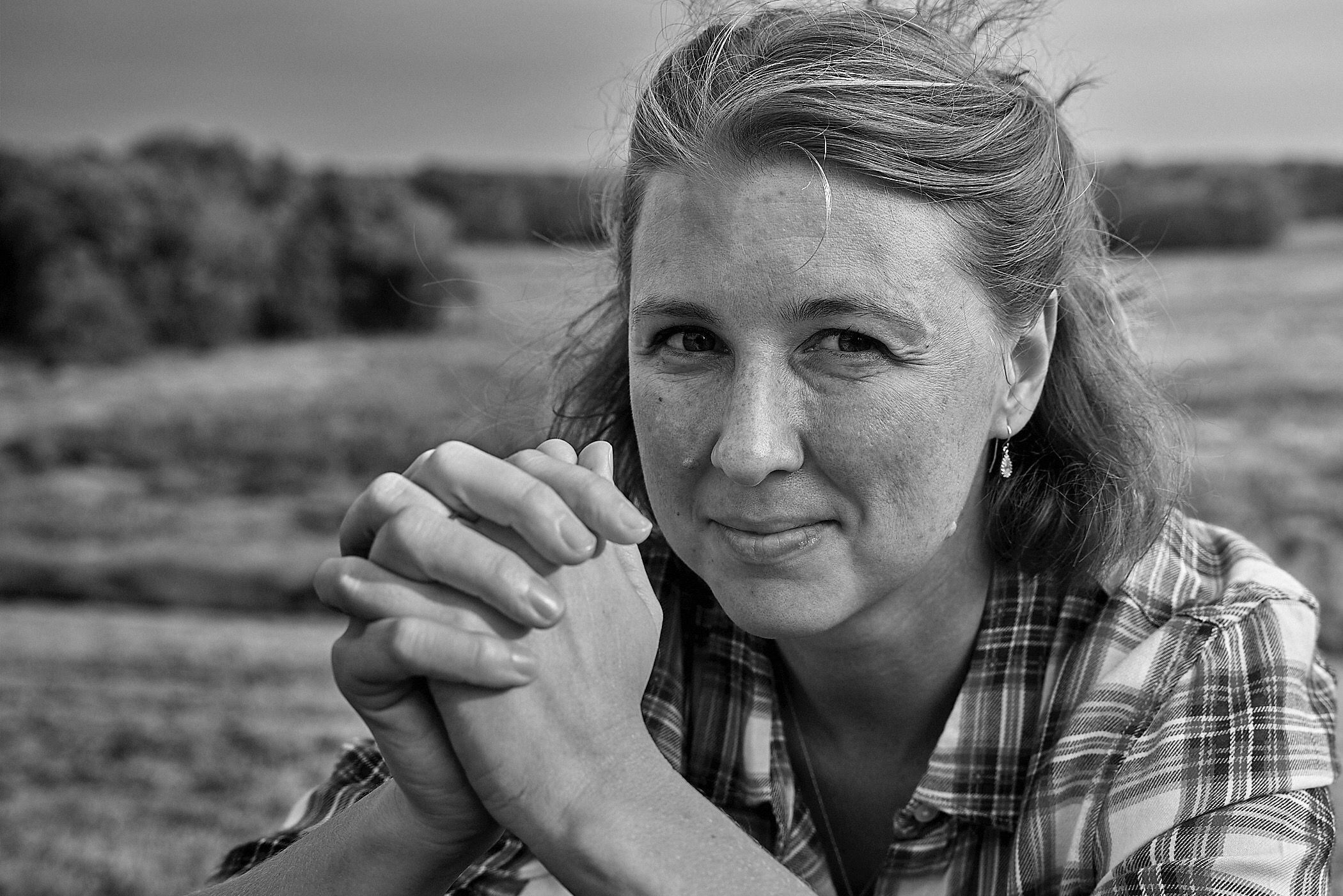
And yet forgiveness remains a Christian tenet, and a beautiful one at that, said Rachel Whipple, a Latter-day Saint lawyer who has written about forgiveness.
“The LDS concept of forgiveness is actually a really lovely one,” she said, “that by forgiving others, we’re able to free ourselves from the pain that we’ve suffered.”
The problem arises, Whipple said, when it becomes a cudgel used to discourage victims from seeking resolution from, or a way out of, abuse.
She has witnessed this phenomenon firsthand through her work at a free legal clinic in Provo, where she has met with women in abusive relationships or marriages who have gone to their bishops for help only to be told to forgive their partner or spouse.
“And that,” Whipple said, “keeps them in a dangerous situation.”
Green suggested that a better way of understanding forgiveness is as fulfilling the biblical commandment to love one’s neighbor as oneself.
That means, she said, “validating the harm” others experience and never asking them to “bypass their own dignity and their own self-respect in order to let the community move on.” It also means, in the case of victims, “advocating for justice for themselves” and not settling for a “sort of pseudo reconciliation that doesn’t really allow for full accountability or for healing.”
By choosing to speak up on her own behalf and to try to prevent possible additional abuse, Goodrich was, Green said, fulfilling both aspects of the divine mandate: demonstrating love for herself and her neighbor.
“We do a good job as a church talking about mourning with those who mourn,” Green said, “but maybe not enough about doing all we can to prevent unnecessary mourning.”
She suggested that the Latter-day Saint community “can learn something from someone like Goodrich,” whom she described as challenging her fellow faith members to “reorient” away from a focus on simply reacting to harm and toward being “proactive” in warding it off in the first place.
The demands of justice
Growing up a Latter-day Saint, Whipple said she was taught to believe that baked into the repentance process was answering to the law for those who had broken it. And yet, she noted that she was never taught that it was OK to demand justice from someone else.
This apparent contradiction, she said, is summed up in a story former church President Gordon B. Hinckley relayed in a 2005 General Conference address titled “Forgiveness.” In it, he tells of a teenager who tossed a frozen turkey from his car, which then collided with a woman’s windshield, shattering it and her face. The woman survived, only to advocate for the lowest possible sentencing for her assailant, who ended up serving six months in jail.
“And this is exemplary of how a victim is supposed to act,” Whipple said, “to be forgiving and to shortcut the natural consequences or the legal consequences that would fall on the person for the wrong that they did.”
On the other hand, a former counselor in the global Relief Society presidency, Chieko Okazaki, quoted the Latter-day Saint psychologist Wendy Ulrich to argue in a 2002 address at church-owned Brigham Young University that forgiving prematurely can lead to “exonerat[ing] others’ actions when they are dangerous and destructive. To attempt to be merciful in the absence of justice is to deny the characteristics which make God God.”
More recently, the faith’s newest apostle, Patrick Kearon, emphasized this need for accountability during his 2022 General Conference sermon directed toward survivors of sexual abuse.
“Abusers — including those who were once abused themselves — who confess, forsake their sin, and do all in their power to make recompense and restitution,” he said, “have access to forgiveness through the miracle of the Atonement of Christ.”
When should the victim forgive?
The right time to forgive, Whipple and Green agreed, is simple: when the victim is ready.
The church’s own instructions for bishops back this idea. “Allow the victim to work through his or her own feelings and challenges related to the abuse,” the guidelines state, “before counseling the person about forgiving the offender.”
As for herself, Goodrich is emphatic: “I believe in love and forgiveness.”
But, she said, “I also feel that love, forgiveness and true Christianity are not synonymous with the kind of pretending and enabling that perpetuates generational and societal cycles of dysfunction and abuse.”
Editor’s note • This story is available to Salt Lake Tribune subscribers only. Thank you for supporting local journalism.






















